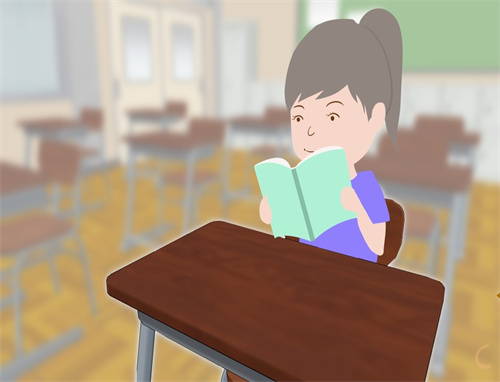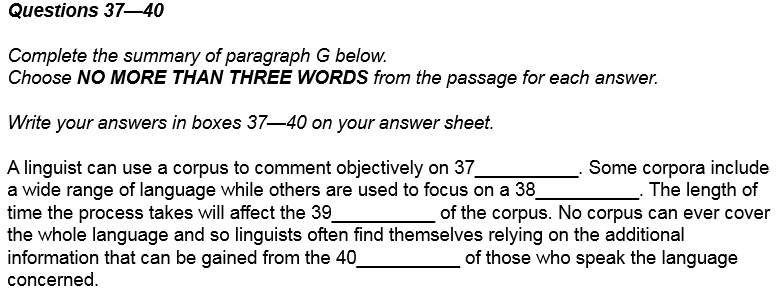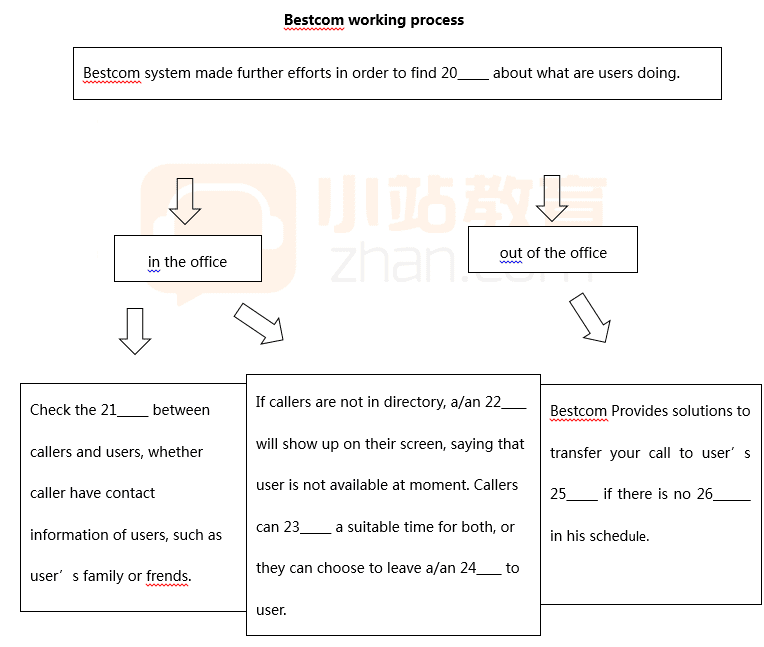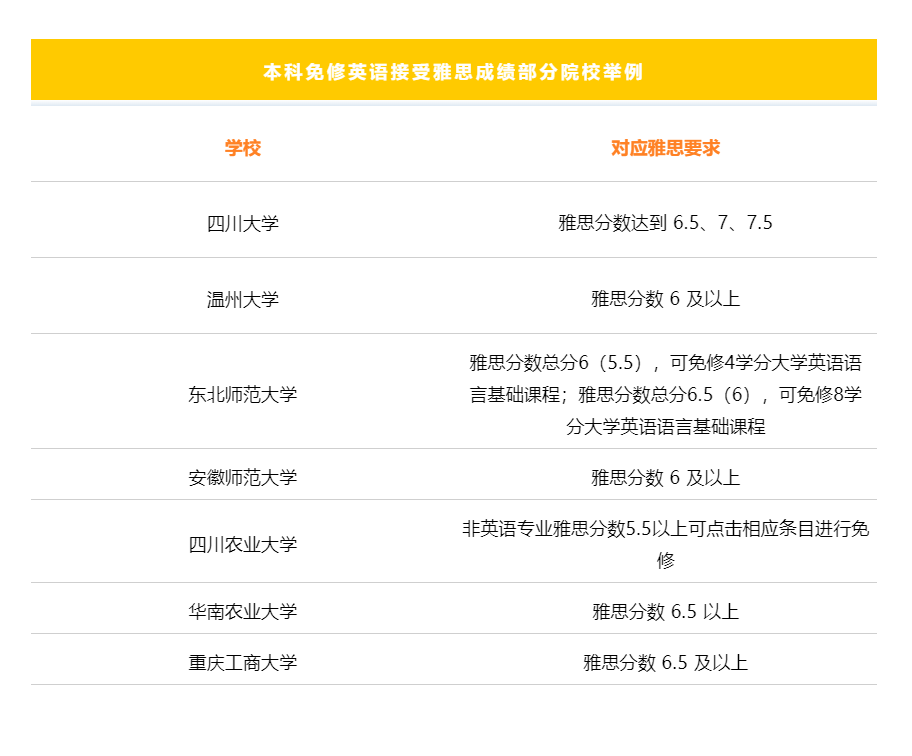今天小编给大家带来了托福阅读满分需要经历哪些训练,希望能够帮助到大家,下面小编就和大家分享,来欣赏一下吧。
托福阅读满分需要经历哪些训练
托福阅读理解满分的出现必须依赖于三个方面的训练:
1.词汇
从某种意义上来讲,词汇量的大小是TOEFL阅读理解高分的基础和关键。如果词汇量没有达到基本要求(五千以上),纵然你有"葵花宝典"在手,也只能命丧ETS的“毒招”之下。所以,以牺牲词汇量为代价的技巧练习简直是一味巨毒无比的“五毒散”。
2.通过练习使学生养成高效的阅读方法--即所谓的托福阅读技巧
TOEFL的阅读量非常大,一般的中国考生根本无法把文章全部读完,所谓的“扫读法”、“跳读法”和“略读法”也只能适用于少数类型的文章,根本不能解决本质问题。那么,文章到底应该怎么读法呢?一句话,主动地阅读文章的关键部位。所谓主动是指不能象一般的阅读那样完全被动地接受信息,而应该不断的进行思考和预测;所谓关键部位,主要是每一段的开头和结尾部分。由于TOEFL的阅读理解文章全部选自于正式出版物,文章的逻辑结构非常完整和严谨,而且出现的逻辑模式也是屈指可数。经过系统的训练,考生的预测可以做到非常准确的程度。这样,通过阅读文章的几处关键部位,就能很快地把握整个文章的结构和内在的逻辑关系,也就解决了问题的70%。
3.解题训练
排除法恐怕是一直以来大多数学生在解阅读理题目时使用多的方法。事实上,这种方法具有致命的缺点:干扰大、费时间。更有效和迅速的办法是读完题干之后,就在脑子反映出一个模糊的或者是不完整的答案,然后直接在选项中寻找接近的答案进行判断。这种能力必须在平时的训练和讲解中逐渐养成和加强,决非什么技巧之类的东西可以替代。
除了上述三方面的训练之外,如果能够对一些基本的背景知识加以补充的话,更能确保阅读理解的准确率和速度。
考生在托福阅读备考的时候一定要从基础部分开始复习,并加上一些托福阅读技巧的配合,这样能够给大家的托福阅读备考带来不小的帮助。大家一定要早准备!通过积累,一定会有所收获!
托福阅读真题原题+题目
By the mid-nineteenth century, the term icebox had entered the American language, but icewas still only beginning to affect the diet of ordinary citizens in the United States. The ice tradegrew with the growth of cities. Ice was used in hotels, taverns, and hospitals, and by someforward-looking city dealers in fresh meat, fresh fish, and butter. After the Civil War (1861-1865),as ice was used to refrigerate freight cars, it also came into household use. Even before 1880, halfthe ice sold in New York, Philadelphia, and Baltimore, and one-third of that sold in Boston andChicago, went to families for their own use. This had become possible because a new householdconvenience, the icebox, a precursor of the modern refrigerator, had been invented.
Making an efficient icebox was not as easy as we might now suppose. In the early nineteenthcentury, the knowledge of the physics of heat, which was essential to a science of refrigeration,was rudimentary. The commonsense notion that the best icebox was one that prevented the icefrom melting was of course mistaken, for it was the melting of the ice that performed the cooling.Nevertheless, early efforts to economize ice included wrapping the ice in blankets, which kept theice from doing its job. Not until near the end of the nineteenth century did inventors achieve thedelicate balance of insulation and circulation needed for an efficient icebox.
But as early as 1803, an ingenious Maryland farmer, Thomas Moore, had been on the righttrack. He owned a farm about twenty miles outside the city of Washington, for which the villageof Georgetown was the market center. When he used an icebox of his own design to transport hisbutter to market, he found that customers would pass up the rapidly melting stuff in the tubs ofhis competitors to pay a premium price for his butter, still fresh and hard in neat, one-poundbricks. One advantage of his icebox, Moore explained, was that farmers would no longer have totravel to market at night in order to keep their produce cool.
1. What does the passage mainly discuss?
(A) The influence of ice on the diet
(B) The development of refrigeration
(C) The transportation of goods to market
(D) Sources of ice in the nineteenth century
2. According to the passage , when did the word icebox become part of the language of the
United States?
(A) in 1803
(B) sometime before 1850
(C) during the civil war
(D) near the end of the nineteenth century
3. The phrase forward-looking in line 4 is closest in meaning to
(A) progressive
(B) popular
(C) thrifty
(D) well-established
4. The author mentions fish in line 4 because
(A) many fish dealers also sold ice
(B) fish was shipped in refrigerated freight cars
(C) fish dealers were among the early commercial users of ice
(D) fish was not part of the ordinary person's diet before the invention of the icebox
5. The word it in line 5 refers to
(A) fresh meat
(B) the Civil War
(C) ice
(D) a refrigerator
6. According to the passage , which of the following was an obstacle to the development of the
icebox?
(A) Competition among the owners of refrigerated freight cars
(B) The lack of a network for the distribution of ice
(C) The use of insufficient insulation
(D) Inadequate understanding of physics
7. The word rudimentary in line 12 is closest in meaning to
(A) growing
(B) undeveloped
(C) necessary
(D) uninteresting
8. According to the information in the second paragraph, an ideal icebox would
(A) completely prevent ice from melting
(B) stop air from circulating
(C) allow ice to melt slowly
(D) use blankets to conserve ice
9. The author describes Thomas Moore as having been on the right track (lines 18-19) to indicate
that
(A) the road to the market passed close to Moore's farm
(B) Moore was an honest merchant
(C) Moore was a prosperous farmer
(D) Moore's design was fairly successful
10. According to the passage , Moore's icebox allowed him to
(A) charge more for his butter
(B) travel to market at night
(C) manufacture butter more quickly
(D) produce ice all year round
11. The produce mentioned in line 25 could include
(A) iceboxes
(B) butter
(C) ice
(D) markets
PASSAGE 1 BBACC DBCDA B
托福阅读真题原题+题目
The spectacular aurora light displays that appear in Earth's atmosphere around the north and south magnetic poles were once mysterious phenomena. Now, scientists have data from satellites and ground-based observations from which we know that the aurora brilliance is an immense electrical discharge similar to that occurring in a neon sign.
To understand the cause of auroras, first picture the Earth enclosed by its magnetosphere, a huge region created by the Earth's magnetic field. Outside the magnetosphere, blasting toward the earth is the solar wind, a swiftly moving plasma of ionized gases with its own magnetic filed. Charged particles in this solar wind speed earthward along the solar wind's magnetic lines of force with a spiraling motion. The Earth's magnetosphere is a barrier to the solar winds, and forces the charged particles of the solar wind to flow around the magnetosphere itself. But in the polar regions, the magnetic lines of force of the Earth and of the solar wind bunch together. Here many of the solar wind's charged particles break through the magnetosphere and enter Earth's magnetic field. They then spiral back and forth between the Earth's magnetic poles very rapidly. In the polar regions, electrons from the solar wind ionize and excite the atoms and molecules of the upper atmosphere, causing them to emit aurora radiations of visible light.
The colors of an aurora depend on the atoms emitting them. The dominant greenish white light comes from low energy excitation of oxygen atoms. During huge magnetic storms oxygen atoms also undergo high energy excitation and emit crimson light. Excited nitrogen atoms contribute bands of color varying from blue to violet. Viewed from outer space, auroras can be seen as dimly glowing belts wrapped around each of the Earth's magnetic poles. Each aurora hangs like a curtain of light stretching over the polar regions and into the higher latitudes. When the solar flares that result in magnetic storms and aurora activity are very intense, aurora displays may extend as far as the southern regions of the United States.
Studies of auroras have given physicists new information about the behavior of plasmas, which has helped to explain the nature of outer space and is being applied in attempts to harness energy from the fusion of atoms.
1. What does the passage mainly discuss?
(A) The methods used to observe auroras from outer space
(B) The formation and appearance of auroras around the Earth's poles
(C) The factors that cause the variety of colors in auroras
(D) The periodic variation in the display of auroras
2. The word phenomena in line 2 is closest in meaning to
(A) ideas
(B) stars
(C) events
(D) colors
3. The word picture in line 5 is closest in meaning to
(A) frame
(B) imagine
(C) describe
(D) explain
4. The passage describes the magnetosphere as a barrier (line 10) because
(A) its position makes it difficult to be observed from Earth
(B) it prevents particles from the solar wind from easily entering Earth's atmosphere
(C) it increases the speed of particles from the solar wind
(D) it is strongest in the polar regions
5. The word them in line 16 refers to
(A) polar regions
(B) electrons
(C) atoms and molecules
(D) aurora radiations
6. According to the passage , which color appears most frequently in an aurora display?
(A) greenish-white
(B) crimson
(C) blue
(D) violet
7. The word emit in line 20 is closest in meaning to
(A) change from
(B) connect with
(C) add to
(D) give off
8. The word glowing in line 22 is closest in meaning to
(A) shining
(B) moving
(C) charging
(D) hanging
9. Auroras may be seen in the southern regions of the United Sates when
(A) magnetic storms do not affect Earth
(B) solar flares are very intense
(C) the speed of the solar wind is reduced
(D) the excitation of atoms is low
10. The passage supports which of the following statements about scientists'n derstanding of
auroras?
(A) Before advances in technology, including satellites, scientists knew little about auroras.
(B) New knowledge about the fusion of atoms allowed scientists to learn more about auroras.
(C) Scientists cannot explain the cause of the different colors in auroras.
(D) Until scientists learn more about plasma physics, little knowledge about auroras will be available.
11. Which of the following terms is defined in the passage ?
(A) magnetosphere (line 6)
(B) electrons (line 15)
(C) ionize (line 15)
(D) fusion (line 29)
BCBBC ADABA A
托福阅读满分需要经历哪些训练相关文章:
★ 英语学习
托福阅读满分需要经历哪些训练
上一篇:托福阅读考试注意的三点内容
下一篇:托福阅读方法的总结






